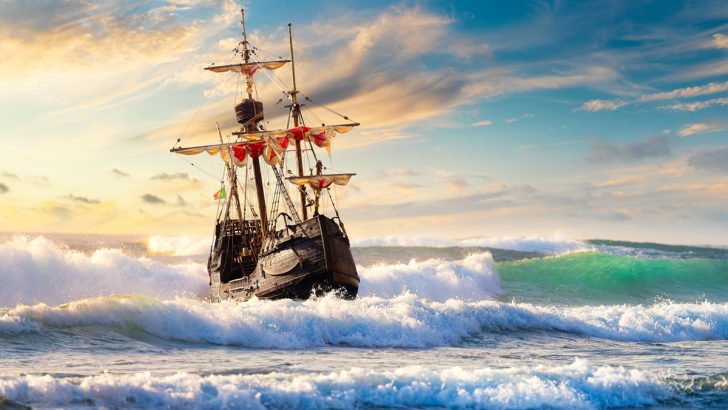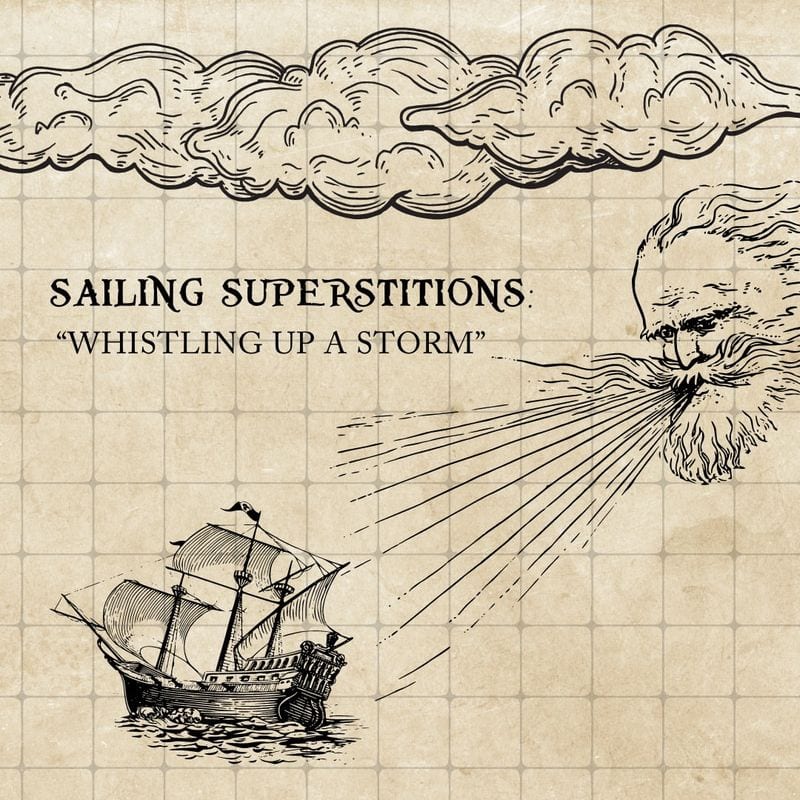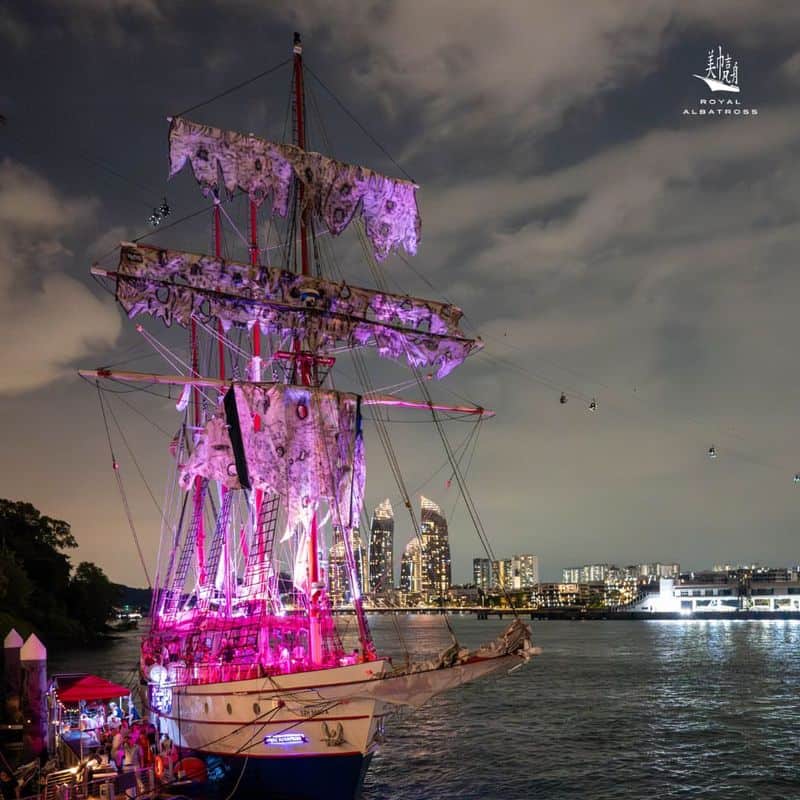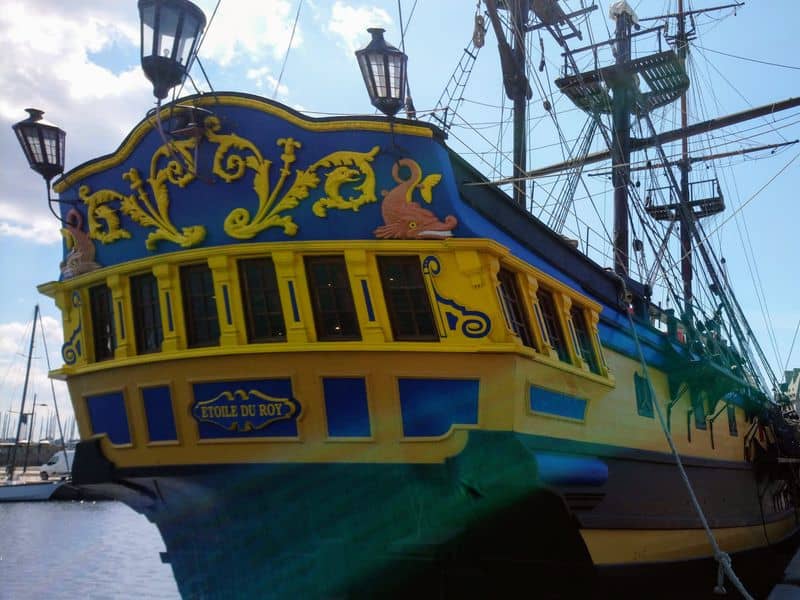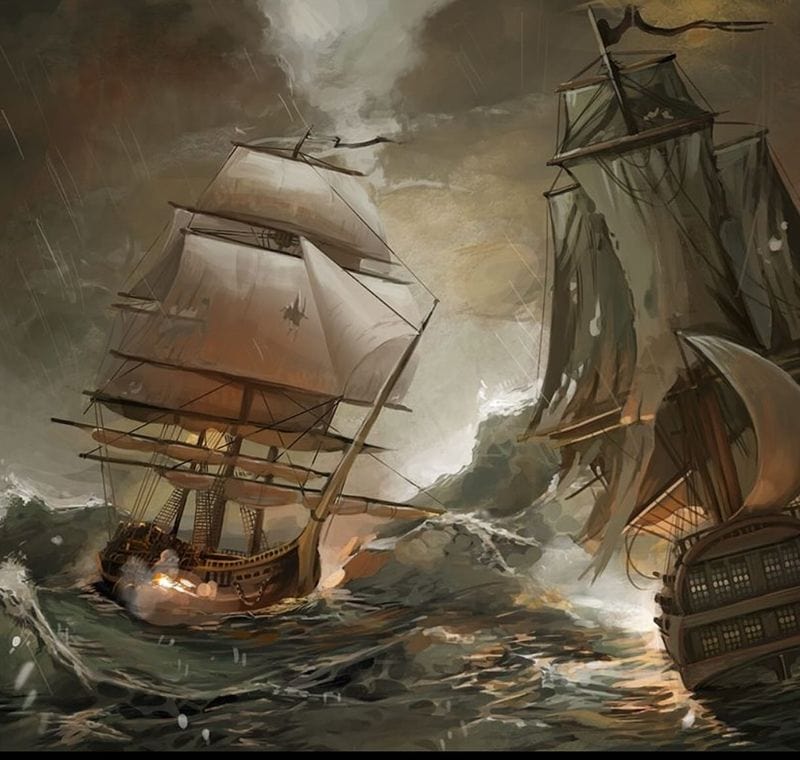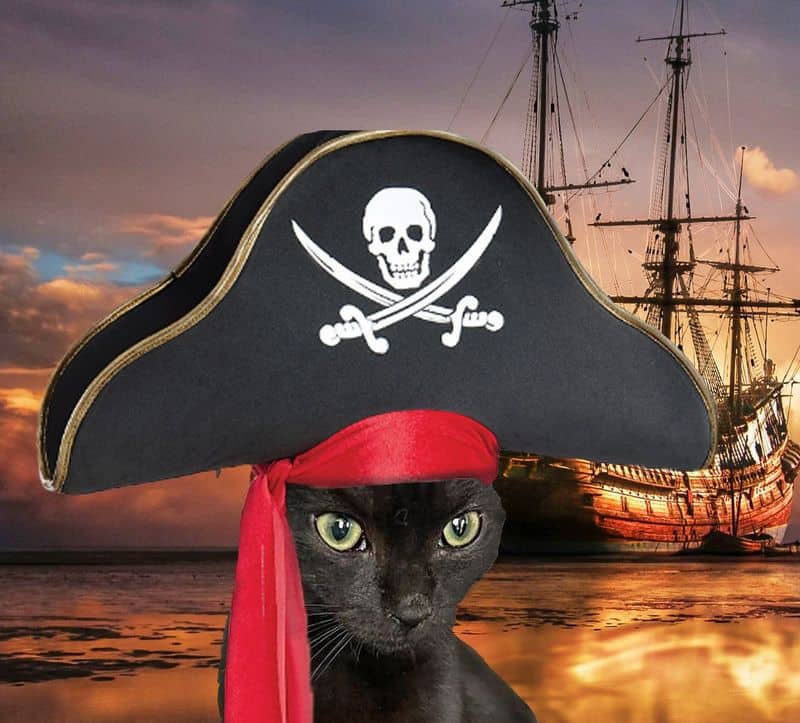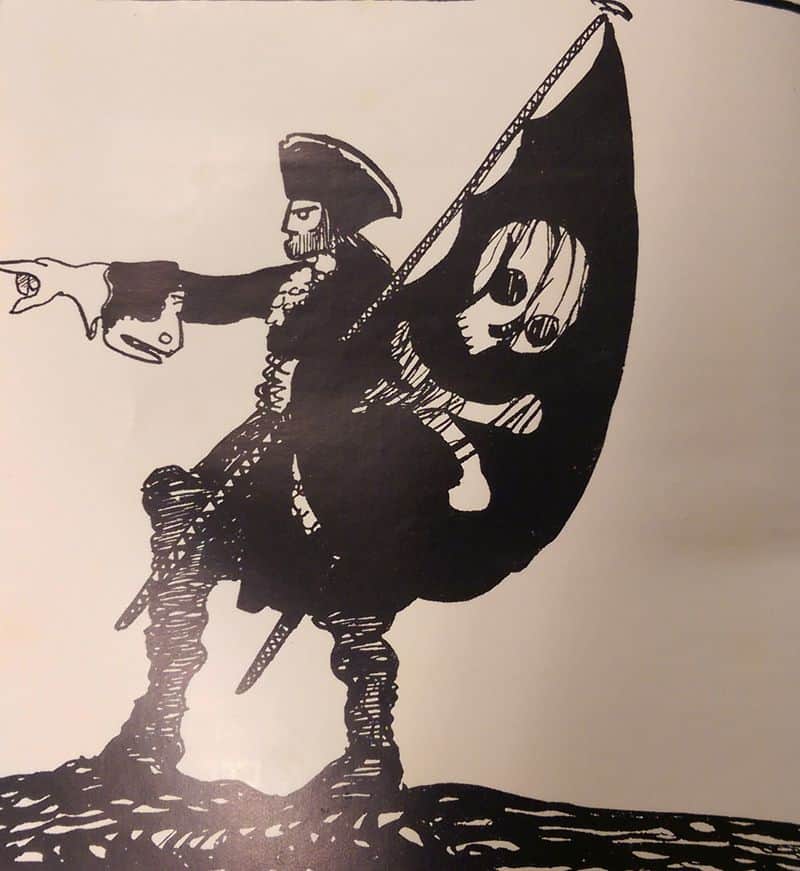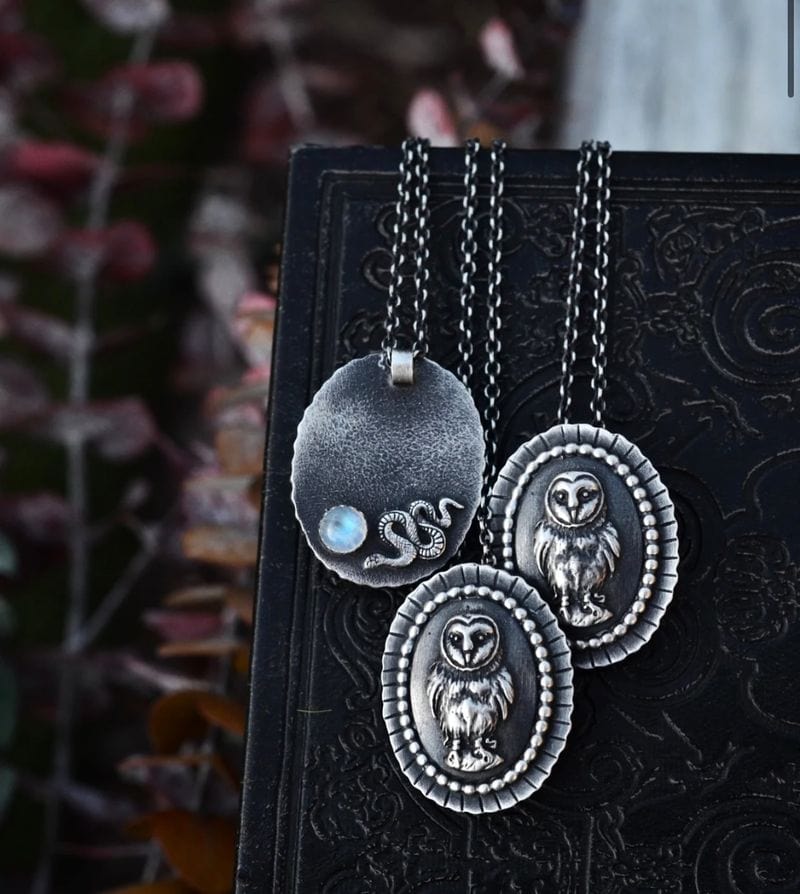Life at sea was dangerous and unpredictable, making pirates especially prone to superstitions. These swashbuckling sailors believed certain omens could spell doom or bring good fortune on their voyages.
From forbidden objects to unlucky actions, pirates lived by a strange code of supernatural beliefs that guided their daily lives on the high seas.
1. Whistling Aboard Ships
Pirates believed whistling could literally whistle up a storm. The haunting melody was thought to challenge the wind spirits, who would respond with gale-force vengeance. Many a sailor found himself threatened with keelhauling for carelessly whistling a tune.
Only certain crew members were allowed to whistle during specific circumstances – like when there was no wind at all and the ship was becalmed. The quartermaster might give a short, controlled whistle to summon a breeze, but anyone else doing so risked severe punishment or worse – being blamed for any misfortune that followed.
2. The Dreaded Banana Curse
Carrying bananas aboard a pirate vessel was considered catastrophic bad luck. Caribbean trading ships carrying bananas seemed to suffer more shipwrecks, creating this peculiar maritime taboo. Some believed poisonous spiders hiding in banana bunches caused crew deaths.
Other theories suggested that ships carrying the quick-spoiling fruit traveled faster, sailing into dangerous weather that slower vessels might have avoided. Even today, some fishing boats maintain this ancient superstition.
Pirates were known to throw bananas overboard immediately if discovered, sometimes punishing the offender who brought them aboard by making them swim after the discarded fruit.
3. Albatross: Sacred Seabird
Albatrosses were believed to carry the souls of dead sailors, making them sacred creatures to pirates and seafarers alike. Spotting one of these magnificent birds with their impressive wingspan was considered a powerful good omen, promising fair winds and safe passage.
Killing an albatross, however, was the height of maritime sacrilege. Any sailor who harmed one was believed to bring terrible misfortune upon the entire ship and crew.
This superstition became immortalized in Samuel Taylor Coleridge’s poem “The Rime of the Ancient Mariner,” where a sailor who shoots an albatross is forced to wear the dead bird around his neck as punishment while disaster strikes his ship.
4. Renaming a Vessel
Pirates believed ships possessed souls and identities tied to their original names. Changing a ship’s name without proper ceremony was thought to anger the vessel’s spirit and the sea gods, inviting terrible misfortune.
When pirates captured ships they wished to rename, elaborate rituals were performed to appease these supernatural forces. Every trace of the old name had to be removed from the ship and from all written records.
Some captains would write the old name on a piece of paper, place it in a wooden box, and perform a ceremony before burning it or casting it into the depths. Only then could the new name be bestowed without fear of ghostly retribution.
5. Women as Harbingers of Doom
Female passengers were typically forbidden on pirate ships, considered catastrophic bad luck by most crews. Sailors believed women angered the sea itself, which was often personified as a jealous goddess who would rage at their presence with storms and treacherous conditions.
The superstition had practical roots too. Male sailors feared women would distract the crew, causing fatal mistakes during critical moments.
Interestingly, this superstition had notable exceptions. Disguised female pirates like Anne Bonny and Mary Read managed to sail undetected, while naked women as figureheads adorned many ships’ bows – supposedly their bare breasts would calm an angry sea and shame storms into submission.
6. Red Sky Warnings
“Red sky at night, sailor’s delight; red sky at morning, sailors take warning.” This ancient weather prediction rhyme was taken as gospel by pirates who lacked modern forecasting tools. A blood-red sunrise struck fear into the hearts of even the most hardened sea dogs.
The crimson morning sky often accurately predicted approaching storm systems, as dust particles in the eastern atmosphere scattered red light waves. Pirates witnessing this ominous sign would immediately prepare their vessels for rough weather.
Ship captains might alter course, reduce sail, or seek shelter in a protected harbor after spotting this foreboding celestial warning. Ignoring such a clear sign from nature was considered not just foolish but a direct challenge to fate.
7. Black Cats: Lucky Ship Companions
Unlike in many land-based cultures, black cats were highly prized aboard pirate vessels. These midnight-colored felines were believed to bring good fortune and safe voyages to their ships. Many pirates actively sought black cats as ship’s mascots.
Cats earned their welcome by controlling the rat population that threatened food stores and spread disease. Beyond this practical benefit, sailors noticed cats could sense approaching storms, becoming agitated before bad weather struck.
If a ship’s cat fell or was thrown overboard, pirates believed terrible storms would follow. Some cats became legendary, like Blackbeard’s companion who supposedly had magical powers. When cats walked toward sailors, it meant good luck; walking away signaled impending disaster.
8. The Left Foot Taboo
Stepping aboard a ship with your left foot first was considered a grave mistake among pirates. The left side was associated with evil and misfortune in many cultures, and this superstition carried special weight on pirate vessels.
Crew members would carefully board using their right foot first, believing this simple act could determine the success or failure of an entire voyage. Some captains stationed a crewman at the gangplank specifically to ensure everyone boarded correctly.
This belief extended to other activities too – pirates would rise from bed right foot first and always turn their hammocks in a clockwise direction. The consequences for ignoring these rules weren’t just supernatural – a captain might order lashings for any sailor who deliberately tempted fate with the wrong foot.
9. Protective Ink and Metal
Pirates covered themselves with tattoos and piercings not just as decoration but as magical protection against evil forces. Specific designs were believed to ward off particular dangers – a pig and rooster tattooed on the feet prevented drowning, as these animals, unable to swim, would rush the sailor to shore.
Crosses, religious symbols, and nautical stars offered divine protection against the countless perils of seafaring life. Even the famous gold earrings had practical and supernatural purpose.
Many pirates believed the precious metal improved eyesight and prevented seasickness. More importantly, the gold earring served as payment to ensure proper burial if a sailor’s body washed ashore in foreign lands – the gold would cover funeral costs so their soul could rest in peace.
10. Spilled Salt Catastrophe
Accidentally spilling salt aboard a pirate ship could cause panic among the crew. This seemingly minor mishap was believed to invite terrible misfortune. Salt was precious at sea, used not just for seasoning but for preserving the meat that sustained long voyages.
The remedy was swift and specific – the spiller had to immediately throw a pinch over their left shoulder, directly into the face of the devil who was thought to lurk there. Failure to perform this ritual could doom the entire ship.
Some captains enforced this superstition with violent punishment for anyone who spilled salt without performing the countercharm. The belief was so strong that pirates would rather go hungry than eat at a table where salt had been spilled without proper spiritual cleansing.

